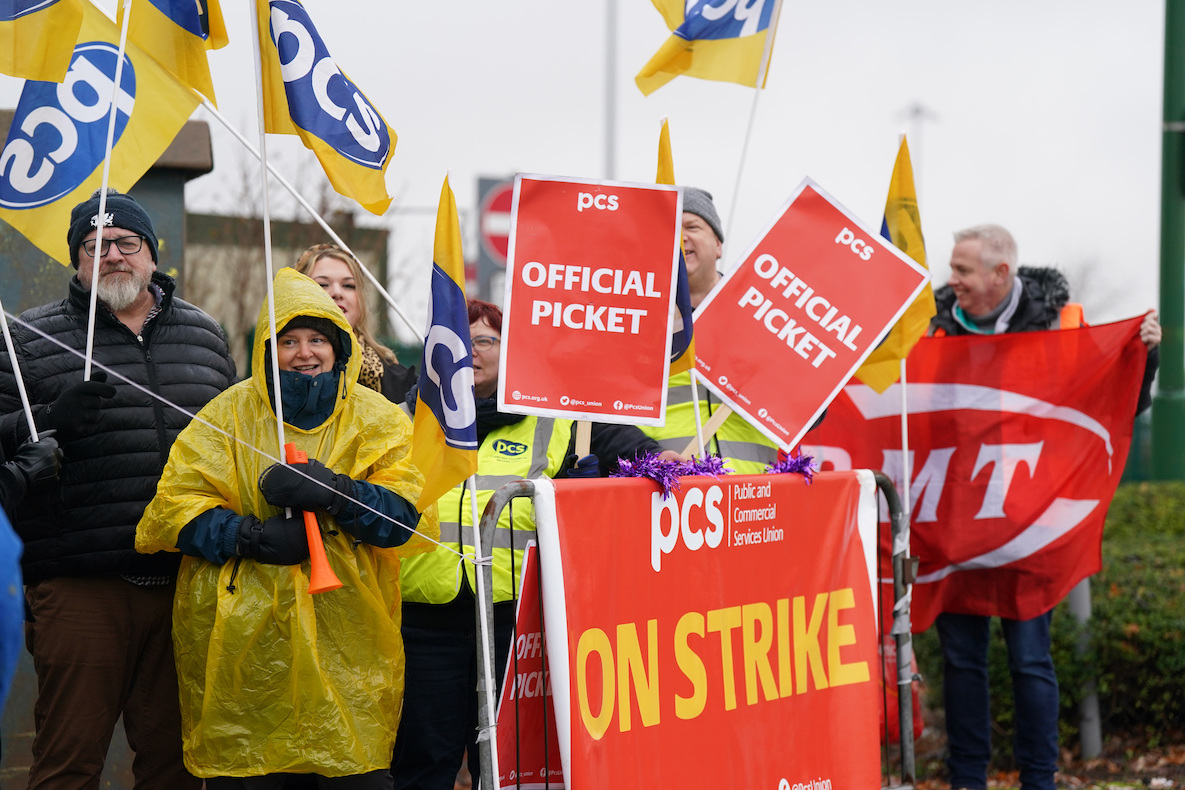Border Force, rail, and driving test employees go on strike
The second in a series of strikes by Border Force employees at UK airports started today and will go through New Year’s Eve.
From Dec 28 to Dec 31, some 1,000 PCS union members, many of whom work in passport control, will strike.
In the absence of pay negotiations from the government, the union has warned that the strikes could last for months.
The walkout by TSSA union members at Great Western Railway and West Midlands Trains will also cause delays on Wednesday and Thursday.
As living expenses grow, the Border Force employees are striking over salary, conditions, and employment.
To cover the strikers at Heathrow, Gatwick, Manchester, Birmingham, Cardiff, and Glasgow airports, as well as the Port of Newhaven, civil servants will join military soldiers.
Before strikes from Dec 23 to 26, very little disrupted daily life. According to a Heathrow official, the airport had “no disruptions” due to the first round of strikes, and traveler immigration lines were “free-flowing.”
At more than 250 locations across the UK, driving examiners and rural payment officers are staging rolling strikes from Dec 13 to Jan 16. A five-day strike by PCS union members will begin on Wednesday at 71 driving test venues in eastern England and the Midlands.
The government has stated that the requested wage increases are “unaffordable,” despite the PCS’s demands for a 10% pay increase, better pensions, job security, and no redundancy reductions for all members.
Prime Minister Rishi Sunak stated that lowering inflation was one of his top priorities before the initial wave of airport personnel strikes.
“Being responsible when it comes to determining public sector compensation is a part of it. In the long run, reducing inflation is best for the entire country “add Mr. Sunak.
Travel delays are also anticipat during the forthcoming rail strikes in January. Recent rail workers’ strikes have caused gridlock in various national regions.
It is anticipated that the most recent round of rail staff strikes will cause travel delays for individuals returning to work after the Christmas and New Year holidays.
On Tuesday, Jan 3, and Wednesday, Jan 4, RMT union members at Network Rail will renew their strike action over pay and conditions.
The RMT members are not permit to work overtime from Dec 18 to Jan 2, and they will strike again on January 6 and 7.
Only about 20% of services will be offered due to the RMT rail employees’ strike, according to the Rail Delivery Group (RDG), and “half of the network will shut down.”
The RDG forewarned that “there are probably going to be even fewer services on Jan 5 to a strike by drivers who belong to [the union] Aslef.”



